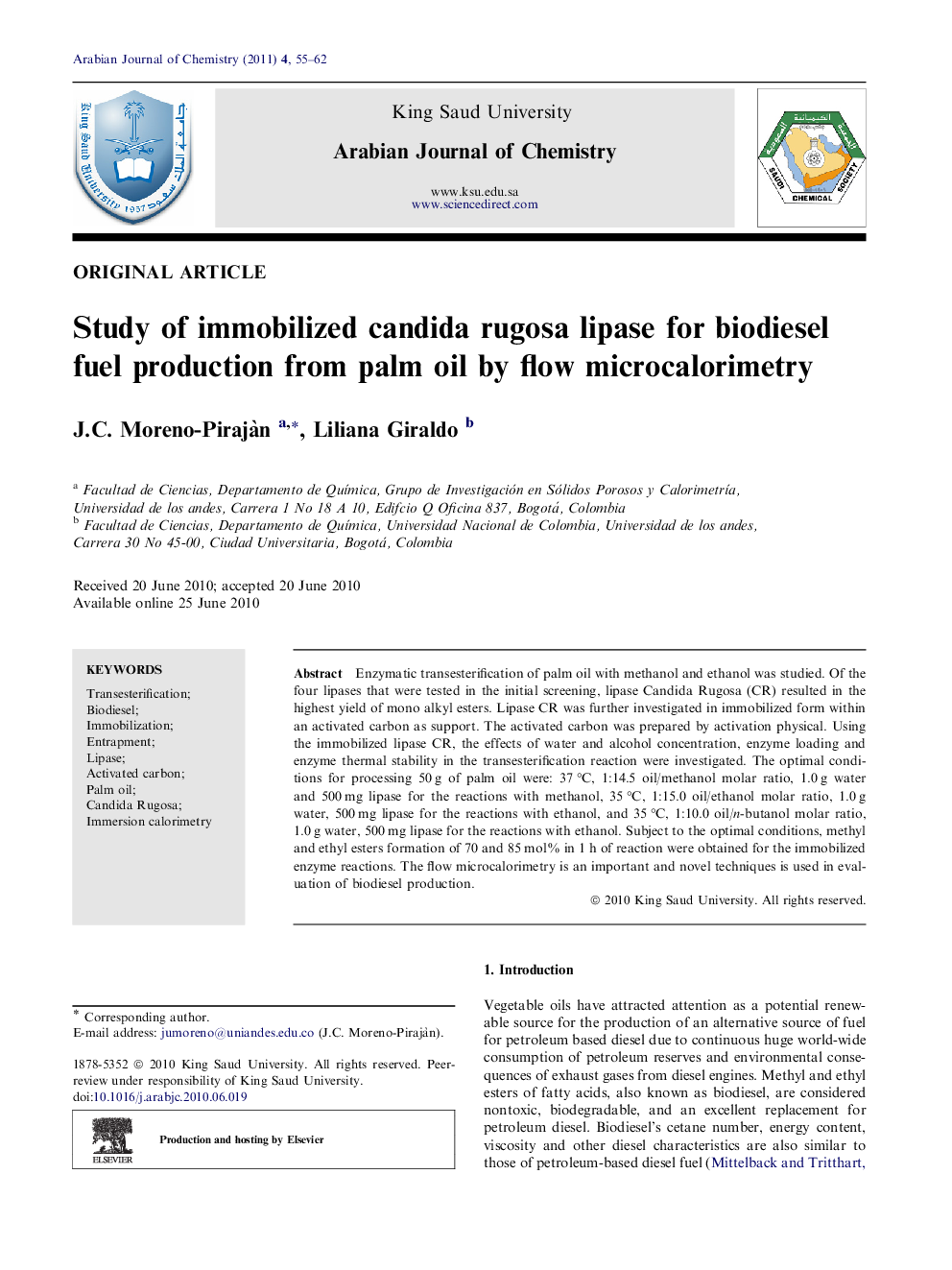| Article ID | Journal | Published Year | Pages | File Type |
|---|---|---|---|---|
| 1250865 | Arabian Journal of Chemistry | 2011 | 8 Pages |
Enzymatic transesterification of palm oil with methanol and ethanol was studied. Of the four lipases that were tested in the initial screening, lipase Candida Rugosa (CR) resulted in the highest yield of mono alkyl esters. Lipase CR was further investigated in immobilized form within an activated carbon as support. The activated carbon was prepared by activation physical. Using the immobilized lipase CR, the effects of water and alcohol concentration, enzyme loading and enzyme thermal stability in the transesterification reaction were investigated. The optimal conditions for processing 50 g of palm oil were: 37 °C, 1:14.5 oil/methanol molar ratio, 1.0 g water and 500 mg lipase for the reactions with methanol, 35 °C, 1:15.0 oil/ethanol molar ratio, 1.0 g water, 500 mg lipase for the reactions with ethanol, and 35 °C, 1:10.0 oil/n-butanol molar ratio, 1.0 g water, 500 mg lipase for the reactions with ethanol. Subject to the optimal conditions, methyl and ethyl esters formation of 70 and 85 mol% in 1 h of reaction were obtained for the immobilized enzyme reactions. The flow microcalorimetry is an important and novel techniques is used in evaluation of biodiesel production.
